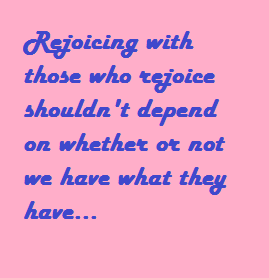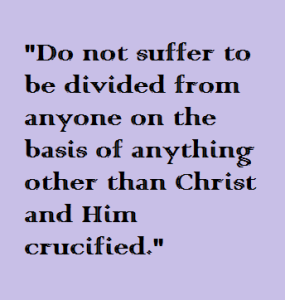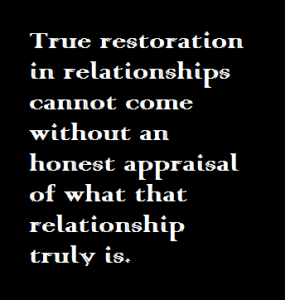The Character of God as Agriculturalist: Pruning the branches
YHVH describes Himself in so many ways throughout the scriptures, and many of them involve agriculture. Hebrew society was largely agrarian — even city people generally had gardens and vines and animals, and so the agricultural references in parables and allegories were able to be grasped by the children of Israel.
.
During the ministry of Messiah Yeshua (Christ Jesus), indeed in the teachings of many of the rabbis of that time period, it was a common thing to relate Kingdom principles using agricultural themes. From the beginning, we see Cain and Abel working the soil and keeping sheep, Noah was a vintner, Abraham was a shepherd (as was Isaac and the sons of Jacob, King David and the prophet Amos), Elisha worked his father’s fields until Elijah laid the mantle upon him. The Pharisees tithed their mint and cumin because they had gardens. Even King Ahab was a vine grower.
.
These were not, as we largely are, ignorant people when it came to the natural world. They knew the times of the harvest. They knew about the barley, the wheat, the olives that were pressed into oil, and they knew about the grape harvest. They knew that sheep and goats did not live in barns (unlike some believers I have come across). They knew about fruit trees and the importance of the early and late rains. They knew about plowing and sowing and reaping. They knew the difference between the vine, the thick woody “trunk,” and the branches, the more delicate appendages, of the grape. They knew about grafting and why it was done. They knew the difference between wheat and chaff and knew how dangerous a tare was.They had the knowledge base that too many of us guess at, with our citified assumptions, often getting it woefully wrong and therefore misinterpreting the scriptures entirely in some areas.
.
.
One of the things they knew about was the importance of the pruning process. We often think that bigger is better and that the more irons we have in the fire, the better. We look at big beautiful branches, busting with leaves and new tendrils, and we think fertility — but we would be entirely wrong. One beneficial thing I did in college for my general education requirement was taking a class in viticulture, which is a fancy latin term for the science of the production and study of grapes. Of course, I just took it for the heck of it, but it unwittingly taught me about the Bible long before I ever desired to read it.
.
As I mentioned before. most people think that the grape vines are the thin branches that the actual grapes grow on, largely because when people think of the word vine, things like ivy come to mind. But the vine is actually the woody trunk growing up out of the ground, which Yeshua likened to Himself. Out of that grows the branches, which He likened to ourselves. It would behoove us, therefore, to learn all about how to be fruitful branches, and what that looks like, and what must happen for a branch to bear maximum fruit — because it doesn’t happen naturally.
.
Left to themselves, branches will grow entirely wild. Untrained, they will fall to the ground, produce copious amounts of leaves, and produce very little fruit, and poor quality fruit at that. The branches must be lifted up, secured, and heavily pruned. A branch that spends all of it’s nutrients producing leaves and new branches will have no energy left over to produce grapes. It is the job of the vine dresser to understand what leaves and branches need to stay and which need to go, in order to provide optimal photosynthesis, and in order to direct the energy into producing fruit instead of more leaves and branches.
.
If I was going to compare it to something modern, I would compare it to writing a book. Have you ever read a book that could have been two chapters long but ended up as twenty? Or saw a movie that had ten minutes worth of plot strung out over three hours? Flowery language, unnecessary side trips, and oftentimes inane dialog that served no purpose other than to show off, or perhaps please a publisher who wanted a minimum number of words. More is not always better, and is often worse (I will mention Tom Bombadill here as proof). If the reader gets exasperated after page 20, then the whole purpose of the book is defeated. That’s where editors come in — getting rid of all the absurdities that do not serve the purpose of the book. It gets shortened, clarified, streamlined — it gets the point across without losing the reader in the process.
.
We are like those over-leafy branches and we are like those frustratingly verbose books. We need editing so that we can produce fruit. We need the unimportant and unfruitful things eliminated from our lives. We need to lose those well-intentioned time and resource eaters that are keeping us from what we are supposed to be doing and learning. We need those fleshy attitudes and wrong understandings eliminated from our characters and minds.
.
Interesting thing is this — we can’t see for ourselves what needs to stay and what needs to go. You notice that in John 15, it is the Father who is called the pruner of vines — and not ourselves. Imagine Him with His pruning shears on the outside, running His hand along the branch, inspecting each juncture and deciding what needs to remain and what needs to be cut away. On the other hand, we are in the dark under a wild mass of tendrils and huge green leaves — honestly, we wouldn’t even know where to begin the process. We have one job and one job only — to desire to be fruitful and to be willing to go through whatever it takes to get there. If we desire that, fruitfulness, we will yield the fate of our superfluous foliage to His best judgement. We will let Him cut off the things we don’t need, even when we want them, and we will allow things to remain, even when we don’t want them.
.
Pruning the branches doesn’t happen once, but year after year after year because the branches always want to grow more leaves than they need to, especially when the vine is good and the soil rich, the water and sun plentiful. We never outgrow the vine dresser, we never stop needing to be trained, secured, judged and pruned. And we will never, ever become able to dress our own vine — but if we are faithful and patient and wise, we will learn to hear the Master’s footsteps, and yield to the process.




